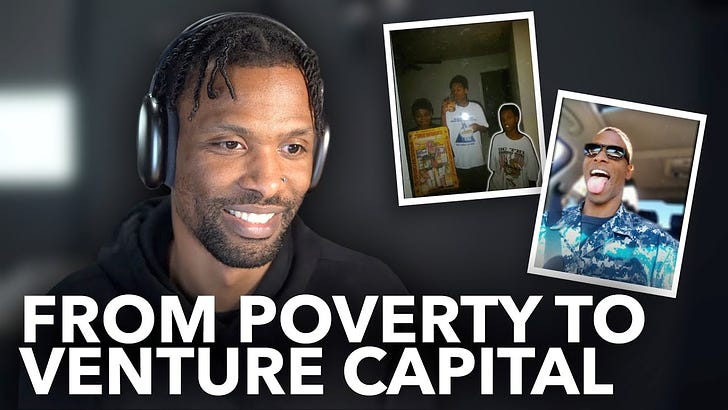🧠 The Bulletin #12: Metrics, Our Investment in Quiltt, and Curriculum Snapshot #1
Welcome back to the Bulletin featuring everything Van Wickle Ventures is reading, listening to, thinking about, and more in the world of VC. This week, you will find our first curriculum snapshot where we have our analysts in training review their VC curriculum.
What We're Consuming in Venture:
Articles we've enjoyed
Common Mistakes in Defining Metrics
As VCs, it’s vital for us to understand how a company defines their key growth metrics, and there are often mistakes made along the way
This article outlines several common mistakes in defining metrics that offer a helpful way to reframe thinking around metrics.
Volkswagen considers spinning off Porsche
On the electric vehicles front, Volkswagen is considering spinning off its profitable Porsche arm in an IPO to raise money for R&D into electric vehicles. Sales of Porsche's electric sedan, the Taycan, eclipse the combined sales of Tesla's Model S and Model X, which makes this a slightly curious move for VW.
Tesla get a lot of hype - but there are better selling electric alternatives out there.
A high finance news source covering private equity, investment banking, venture capital, and central banking
Audio/Video
“From High School Dropout to Venture Capital Principal ” - not all paths to the industry are the same
Check out this 20 minute VC episode with Max Rhodes is about how to build good teams
People to Follow
Smart people whose Twitter feeds we like to stalk
Scott Moss (@scotups): Principal @ Initialized, Engineer & YC Startup Founder, and Educator. Follow for advice about breaking into software engineering.
Balaji Srinivasan (@balajis): Follow for all things NFTs
Memes
Because venture capital memes are a very real thing
Gotta love product-market fit
Van Wickle Ventures Updates
VWV Portfolio News Update
VWV is excited to announce our investment in Quiltt! Check out our recent blog posts about our conviction in this team & their business:
Curriculum Snapshot #1: Great Ventures
Welcome to the first part of our Curriculum Snapshot series, where we take you through what our Analysts-in-Training are learning in curriculum meetings! Last week, the topic of our training was Great Ventures, where our Analysts-in-Training were asked to answer the following questions: What makes a great company? And why do companies fail?
What Makes a Great Company
Analysts-in-Training read YC’s Startup Playbook to learn about what it takes to be a successful start-up concerning the team, product/service, and execution.
The big takeaways:
Start-ups are all about scaling and rapid growth, BUT you gotta also “Do things that don’t scale”—go on the streets and recruit one user at a time. If your product/service is worth loving, it won’t be a waste of time!
Growth is priority, but how do you achieve it? Talk internal strategy all the time and talk about it with everyone—we want collaboration and a diversity of ideas.
Have a good understanding on what will deliver growth. Collaborations with other companies and press launches won’t always work effectively. Test lots of growth strategies, recruit users manually, and listen to the response.
Focus on one project at a time and do it quickly.
Next, Paul Graham’s article Black Swan Farming dives into “good” and “bad” startup ideas. Any idea that obviously sounds good means that it’s probably been done. The most successful ideas are ones that aren’t obvious, ones that may sound initially kind of bad. Here’s the catch, however…most ideas that seem bad are, in fact, bad. The trick is to find the sweet spot between an idea that appears bad and an idea that is good in practice.
How do you know? Approach consumers, have users test it, and if they don’t love it, then pivot. Start-ups are never based on the very first idea and they transition constantly in response to what consumers want.
Why Companies Fail
On the other hand, Analysts-in-Training also read about the top 12 reasons startups fail, which explains that 38% of startups fail from running out of cash and failing to raise capital thereafter. Keep an eye on a business’s cash flow at all times, including: the current cash balance, cash burn rate, and months of runaway. Refer to Fred Wilson’s Analyzing Financial Statements on the calculations and other important numbers every founder should have in their back pocket.
Part of our Analysts-in-Training’s assignment was to explain why a start-up failed and how founders could have executed differently. Here’s a rundown on fintech startup Neufund and the incredibly unexpected and unprecedented lesson to be taken away: don’t follow the regulatory laws, don’t work with the government, don’t play by the rules.
Founders: Zoe Adamovicz and Marcin Rudolf
Year: 2016
Number of employees: 11 total
Amount raised: €9.5M over 3 rounds, with latest funding in Series A, 12/14/2020
What was the company’s value proposition? Connecting investors and entrepreneurs through blockchain based solutions and services:
Fundraising & investing
ESOP (employee stock option plan) manager
Light wallet (doesn’t download the entire blockchain, only the block headers to validate the authenticity of transactions)
Post-investment instruments
And more!
11,000+ institutional, retail, VC, angel investors on the platform (curious to the monthly and daily usage)
123 countries represented
$22.6 deployed through the platform
2017 Attracted over 1,000 investors
2018 First public offering of equity on the blockchain; Equity Token Offering (ETO)
2019 First payout from NEU. Closed world’s first blockchain IPO with GreyP Bikes.
With GreyP Bikes, made the full cycle: issuing tokenized shared for retail investors, corporate governance on blockchain, exit with Porsche, and proceeds distributions
No compliance issues, technical problems, or security breaches
What are some reasons it went out of business?
Regulatory uncertainty: the startup was unsure if regulation would allow them to repeat the Greyp fundraising model with other similar companies. No other decentralized company has made it thus far, which is a just statement to be made in the fintech world.
Neufun hired layers, got licenses, spent money on legal opinions, and actively engaged with regulators and governments. However, they explained that looking for legal approval was a mistake and looking for transparent discussion of merit will always fail. Co-founder Zoe Adamovicz said, “If you play according to Hoyle (playing to the rules, fairly), you’ve lost before you’ve started.”
That wraps up our first Curriculum Snapshot! We’re always looking to engage and would love to hear your thoughts.
Follow us on Twitter: @VanWickleV
Instagram: @VanWickleVentures
Links to Our Readings






